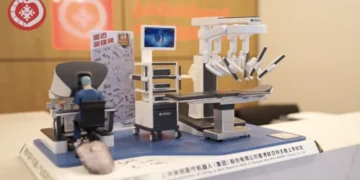Blood in the urine, medically known as hematuria, is one of the most common symptoms of urological diseases. Blood in urine can be caused by various reasons, but in any case, it is strongly recommended and necessary to consult a urologist. Depending on how visible the blood is in the urine, hematuria is classified as either “visible” or “invisible.” If the blood is noticeable to the naked eye, it is referred to as “visible hematuria”; whereas if blood is only detectable through laboratory tests, it is called “invisible hematuria.”
Main Causes of Blood in Urine
As mentioned, blood in urine can result from different medical conditions. However, the most common causes include:
-
Various infections of the urinary bladder
-
Kidney infections and kidney stones
-
Urethritis (inflammation of the urethra)
-
Enlargement of the prostate gland
-
Tumors of the bladder, prostate, or kidneys
In addition to these causes, certain medications may also lead to blood in the urine. Some antibiotics, blood thinners, and cancer treatment drugs can contribute to hematuria. In some cases, adjusting the dosage or changing the medication might be necessary to prevent further bleeding.
Blood in the urine is a sign of an underlying health issue and does not go away on its own. Waiting or attempting self-treatment using home or traditional remedies is strictly inadvisable. Hematuria is a serious symptom that requires immediate diagnosis of the underlying cause and appropriate, rational treatment. Therefore, it is essential to consult a doctor as soon as possible.
Diagnosis and Treatment
At Karazanashvili Robotic Center the causes of blood in the urine and bladder-related issues are diagnosed and treated using ultra-modern equipment from the Japanese company OLYMPUS. If you are experiencing blood in your urine or have been diagnosed via ultrasound with a bladder mass (such as a “polyp,” “growth,” or “tumor”), Karazanashvili Robotic Center offers:
-
Endoscopic examination of the bladder using special lighting that detects hidden/invisible tumor lesions (NBI mode)
-
Endoscopic/”bloodless” removal of bladder masses (polyps, growths, tumors)
At Professor Guram Karazanashvili’s Urology Hub, the latest methods for “bloodless,” ultra-modern endoscopic diagnosis and treatment of bladder cancer include:
-
Detection of hidden tumor sites using special lighting (NBI mode) that standard methods may miss
-
One-block, non-invasive removal of tumor growths without cutting
-
No incisions on the body
-
Only one-day hospital stay
-
Completely painless procedure
Karazanashvili’s Robotic Center
Offers treatment for urological diseases using world-class standard methods.
Contact Us:
Phone: +995 322 23 40 23
Email: info@mmt.ge











